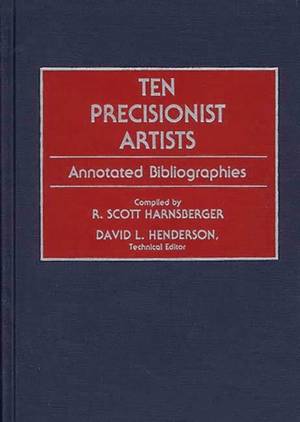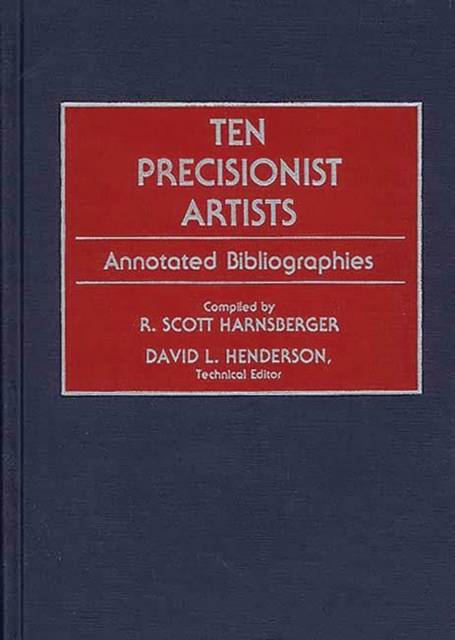
- Retrait gratuit dans votre magasin Club
- 7.000.000 titres dans notre catalogue
- Payer en toute sécurité
- Toujours un magasin près de chez vous
- Retrait gratuit dans votre magasin Club
- 7.000.0000 titres dans notre catalogue
- Payer en toute sécurité
- Toujours un magasin près de chez vous
Description
Sometimes considered to be America's first indigenous modernist art style, Precisionism, a movement principally of the 1920s and 1930s, concentrated on depicting the urban and industrial landscape, emphasizing the formal geometrical qualities of solid mass and clean lines and rendering these vistas with simplified, sharp-edged shapes and smooth, unmodulated application of pigment, void of extraneous details and impersonal in tone. This annotated bibliography deals with Precisionism and its ten leading practitioners: George Ault, Peter Blume, Ralston Crawford, Charles Demuth, Preston Dickinson, O. Louis Guglielmi, Louis Lozowick, Morton L. Schamberg, Charles Sheeler, and Niles Spencer.
Each artist's chapter begins with a biographical sketch and includes sections for Writings, Statements, and Interviews; Monographs and Exhibition Catalogues; Articles and Essays; Exhibition Reviews; Book Reviews; Dissertations and Theses; Reference Sources; and Archival Sources. A special section at the end of each chapter lists annotated reproductions of the artist's work appearing in any of approximately 225 source volumes. Coverage extends to painting, drawings, lithographs, and photographs. An opening chapter, also divided by types of materials, covers Precisionism in general and cites material in which two or more of the ten artists are discussed. A keyword index provides full citations for the source volumes. Three other indexes facilitate access by author, short-title of exhibition catalogues, and subjects. The only annotated bibliography on Precisionism, this volume will be a valuable aid to research on a variety of subjects relating to modern American art.Spécifications
Parties prenantes
- Auteur(s) :
- Editeur:
Contenu
- Nombre de pages :
- 368
- Langue:
- Anglais
- Collection :
- Tome:
- n° 14
Caractéristiques
- EAN:
- 9780313276644
- Date de parution :
- 22-07-92
- Format:
- Livre relié
- Format numérique:
- Genaaid
- Dimensions :
- 156 mm x 234 mm
- Poids :
- 684 g

Les avis
Nous publions uniquement les avis qui respectent les conditions requises. Consultez nos conditions pour les avis.






